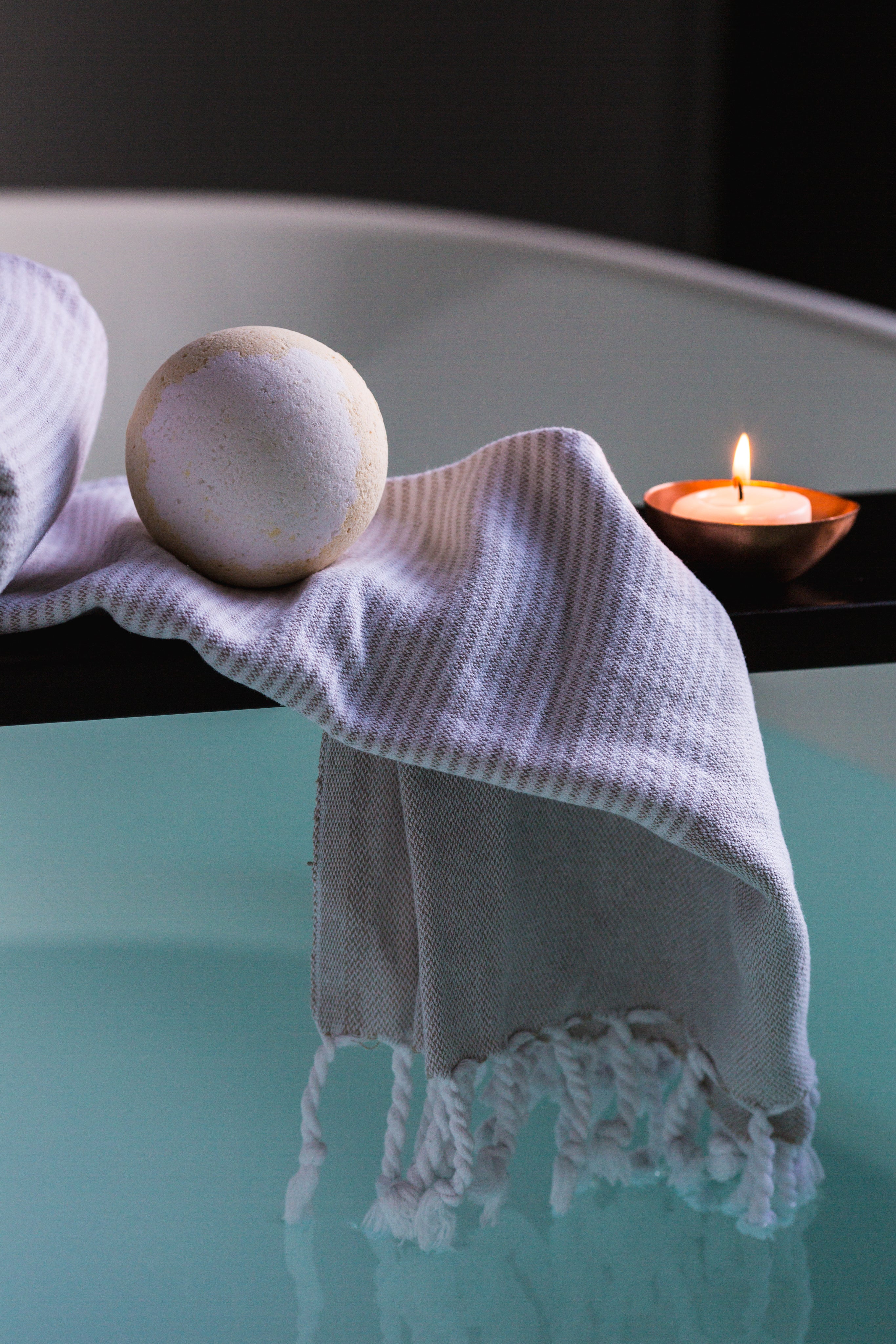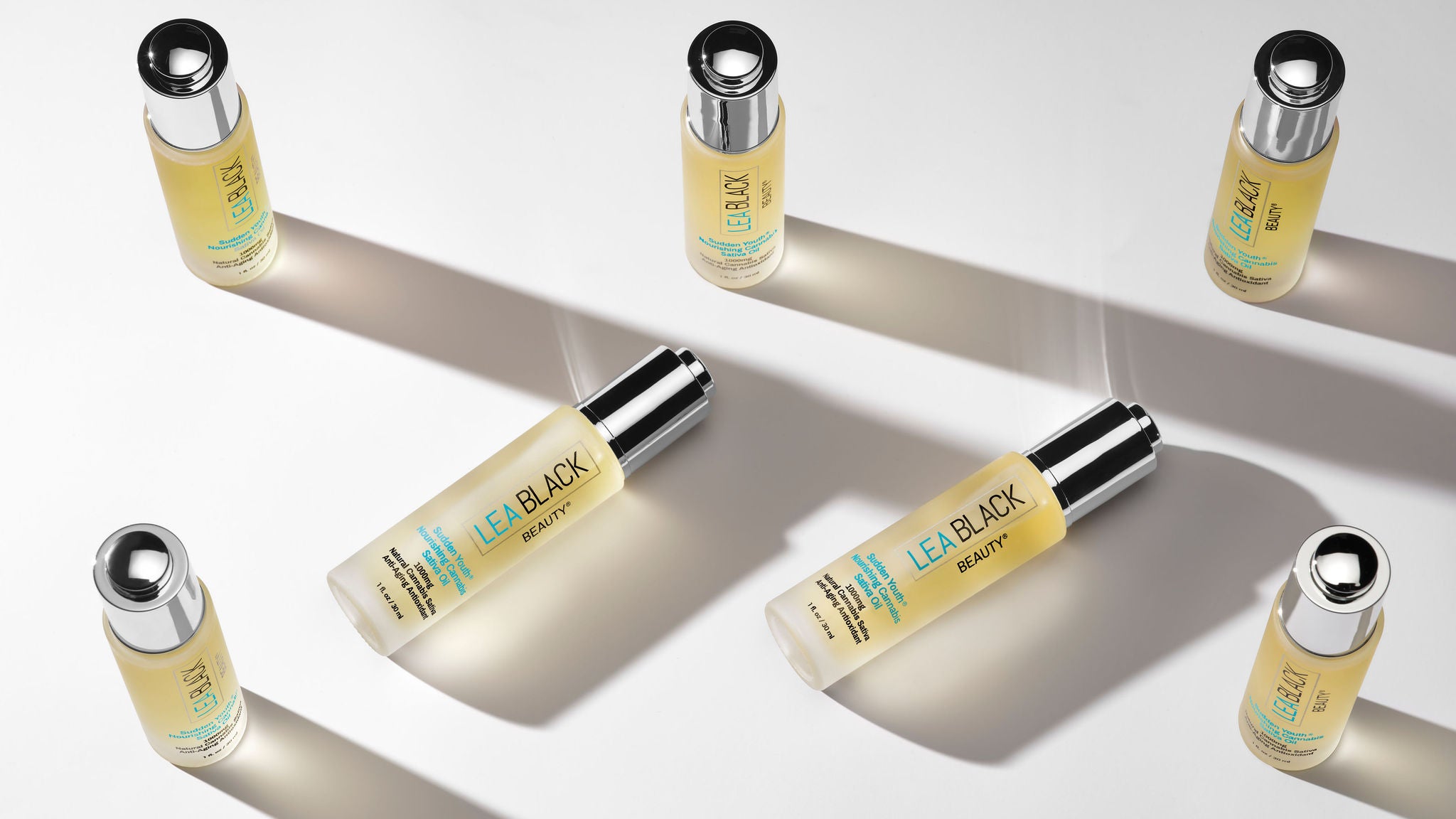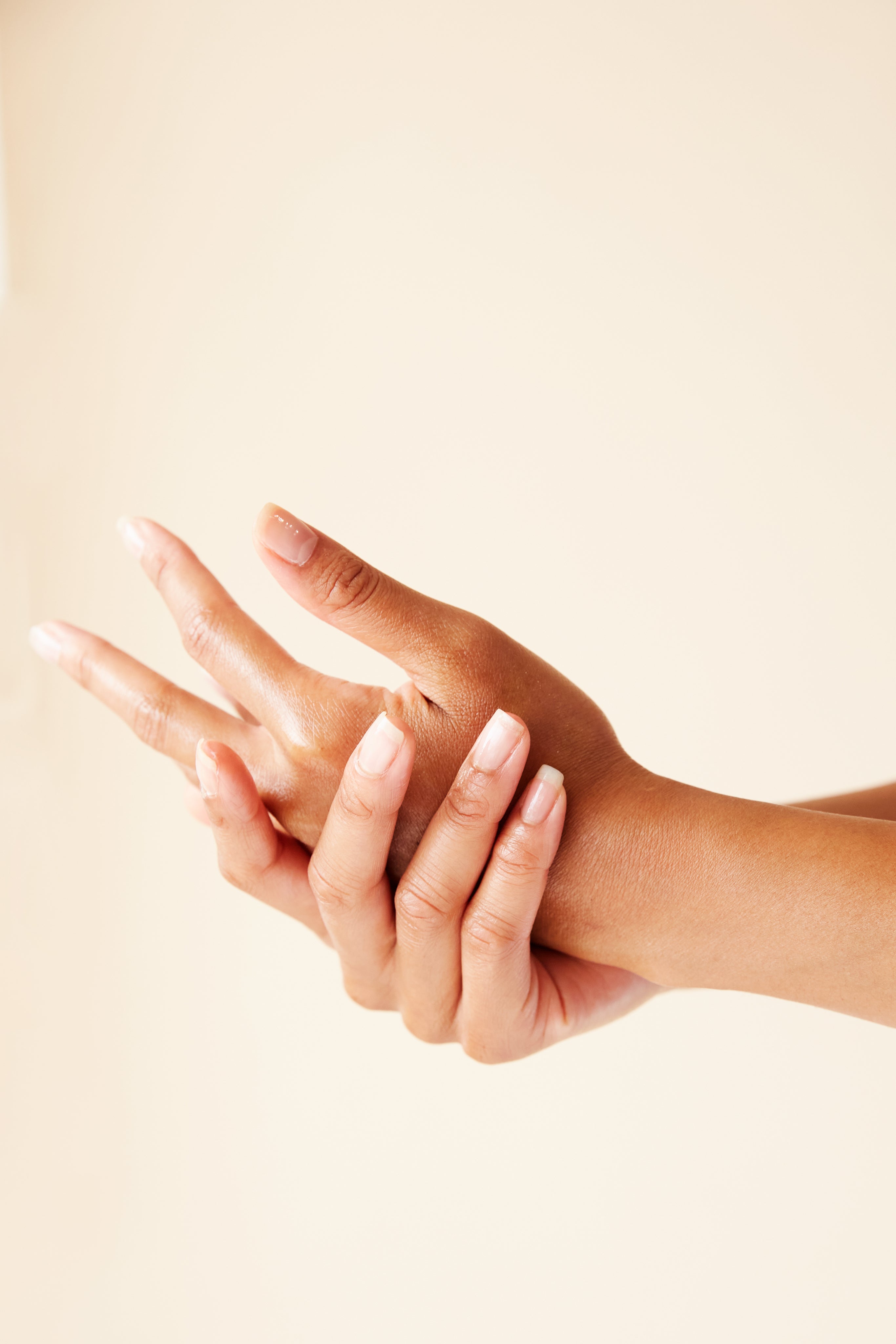- Good sleep and skin health are connected. The skin repairs itself during sleep. Cells are rebuilt, collagen is produced, and the moisture barrier is strengthened.
- Sleep deprivation inhibits cell repair and regeneration, leading to increased breakouts, dull and dehydrated skin, and accelerated aging.
- Good sleep habits coupled with calming CBD skincare support overnight repair and leave your skin visibly refreshed in the morning.
If you’ve ever pulled an all-nighter and recoiled at your reflection the next morning, you already know that sleep and skin health are deeply intertwined. Not getting an ideal amount of sleep, even by just a couple of hours, leaves your skin visibly tired.
It’s easy to tell when someone hasn’t caught enough zzzs the night before. Their under eyes look dark and sunken, or puffy; the skin loses its glow and appears dry, and fine lines become more prominent. This is all due to the simple fact that the skin is an organ (the largest one), and all organs undergo repair while we sleep.
Clearly, good sleep does improve skin. Continue reading to discover what lies beneath the surface and how you can achieve your sleep and skin goals with the right habits.
How Does Good Sleep Affect Skin?
There is plenty of research on the importance of sleep and its impact on the long-term health of the entire body. People who sleep well enjoy a stronger metabolic and immune system, sharper cognitive function, and a lower risk for cardiovascular diseases, as well as type 2 diabetes. Sleep is your body’s way of maintaining balance and restoring optimal bodily function. Here’s how it affects your skin in particular.
The Good Hormones Get to Work
The interplay between sleep and skin begins at rest. Your body releases several hormones that repair and regenerate your skin cells. Human Growth Hormone (HGH) is the most important of them all. HGH stimulates the production of collagen, the building block of cells that gives your skin its youthful plumpness and elasticity. As you enter deeper stages of sleep, cortisol (a stress hormone) levels dip, which helps reduce inflammation and halt excessive sebum production. Even the sleep hormone plays a role. Melatonin is a powerful antioxidant that helps repair damaged skin caused by the sun and combat oxidative stress.
Blood Circulation Is Improved
Increased blood flow is a vital aspect of sleep and skin health. While you sleep, your heart pumps more nutrient- and oxygen-rich blood to your skin cells, helping the repair process. When your body is in the pre-sleep stage, the blood vessels dilate, and your body temperature decreases. This increases the skin’s permeability, allowing skincare products to absorb more effectively. All of these processes together help strengthen your skin barrier against moisture loss and environmental stressors. This is also what gives your skin that bright and fresh look in the morning. So undoubtedly, sleep does improve skin.
How Does Sleep Deprivation Affect Skin
The body is designed to repair itself at night, so if you don’t get adequate sleep, the restorative teamwork between sleep and skin doesn't happen. You’ll feel the fatigue, and your skin will show it. Dark circles under eyes, dehydration, and dullness are some visible changes you’ll notice immediately. Your cortisol levels will become imbalanced, triggering breakouts that will cause even more stress. The good news is that the effects of losing one night’s sleep are temporary and will go away after your next slumber.
But what happens if you’re chronically sleep deprived? If the skin can’t heal, it’ll get weaker over time. This means rapidly aging skin and increased sensitivity to damage from UV rays, pollution, and allergens. This discussion about poor sleep and skin issues can’t even begin to account for how awful you’ll feel physically and mentally.
How Much Sleep Do You Really Need?

Having answered “How does sleep improve skin?”, let’s move on to the next important question: How much sleep does one need? The answer differs based on your age, health, and individual constitution, but 7-8 hours is the recommended amount for most adults. New research indicates that women require slightly more sleep than men due to hormonal differences.
One key aspect to consider regarding sleep and skin health is that quality is often more important than quantity. REM and deep sleep are the requisites for a truly restorative sleep. As long as you’re cycling through these, you’ll feel rested even if you occasionally fall short on hours.
How to Get the Best Beauty Sleep
Some people are blessed with the ability to fall asleep as soon as they hit the pillows. But there’s still hope if you’re not one of them! Here are a few tips to get the best beauty sleep of your life, night after night:
- Maintain a Consistent Schedule: The body’s circadian rhythm loves routine. If you sleep at the same time every night, your body will naturally adjust and learn to unwind when it’s time.
- Create a Quality Sleep Environment: Your bedroom should be cool, dark, and quiet. Invest in quality bedding and blackout curtains to create a calming environment. Pro Tip: Switch to silk or satin pillowcases to end frizzy hair along with your sleep and skin struggles.
- Build a Wind-Down Routine: This is based on the same principle as point one. Let your body know it’s time to sleep with relaxing bedtime activities, such as a nighttime skincare routine, journaling, meditation, or reading.
- Practice Good Sleep and Lifestyle Habits: Does sleep improve skin? Yes. Does lifestyle improve sleep? Yes. Eat healthy food, drink plenty of water, exercise regularly, avoid caffeine after 3 pm, and limit your phone use before bedtime.
Natural CBD Skincare to Support Overnight Repair

If you’ve ever wondered, “How does sleep affect skin?”, the answer is in the glow you see after a restful night. Want to maximize the benefits of a good night’s sleep? Couple it with nighttime skincare infused with CBD! This cannabinoid is packed with powerful anti-inflammatory, anti-aging, and antimicrobial properties that are shown to support the body’s innate healing abilities. Lea Black Beauty® offers an extensive range of CBD-enriched beauty products to target various skin concerns and capitalize on the link between sleep and skin health. Learn more about the skin benefits of CBD and take our skincare quiz for personalized recommendations!





